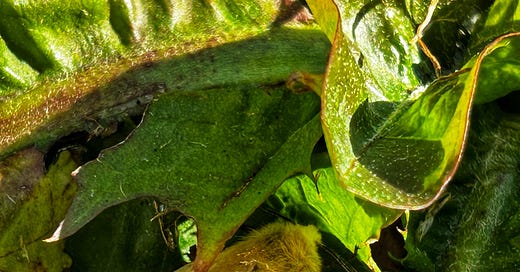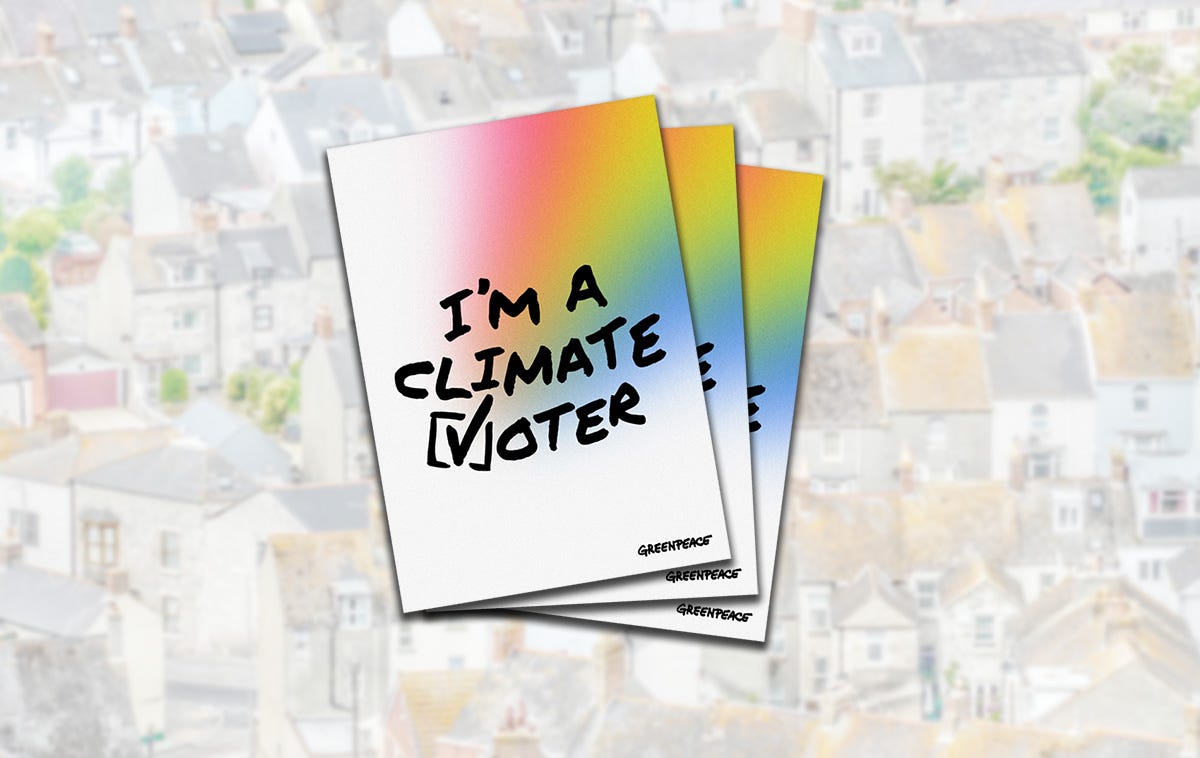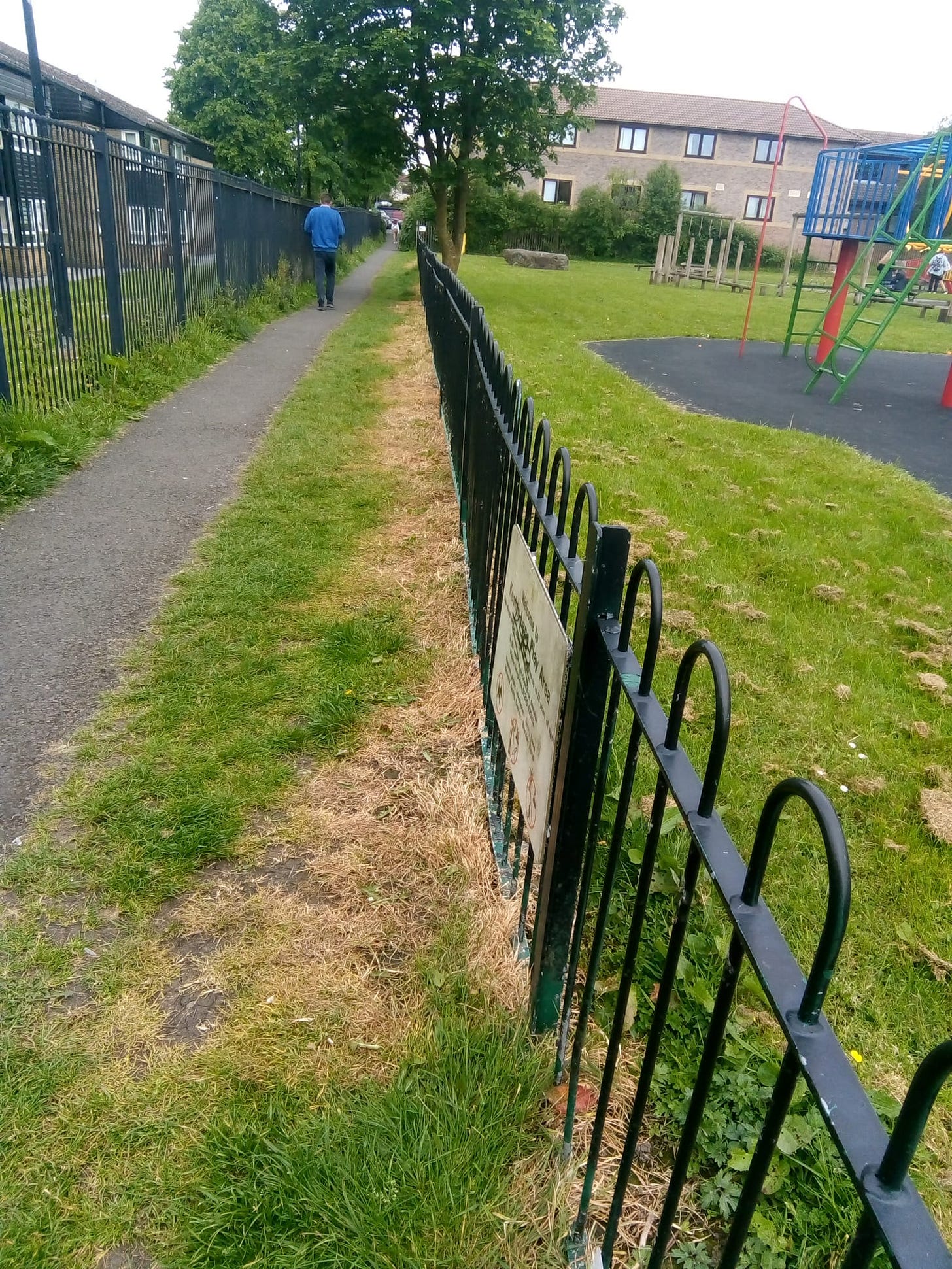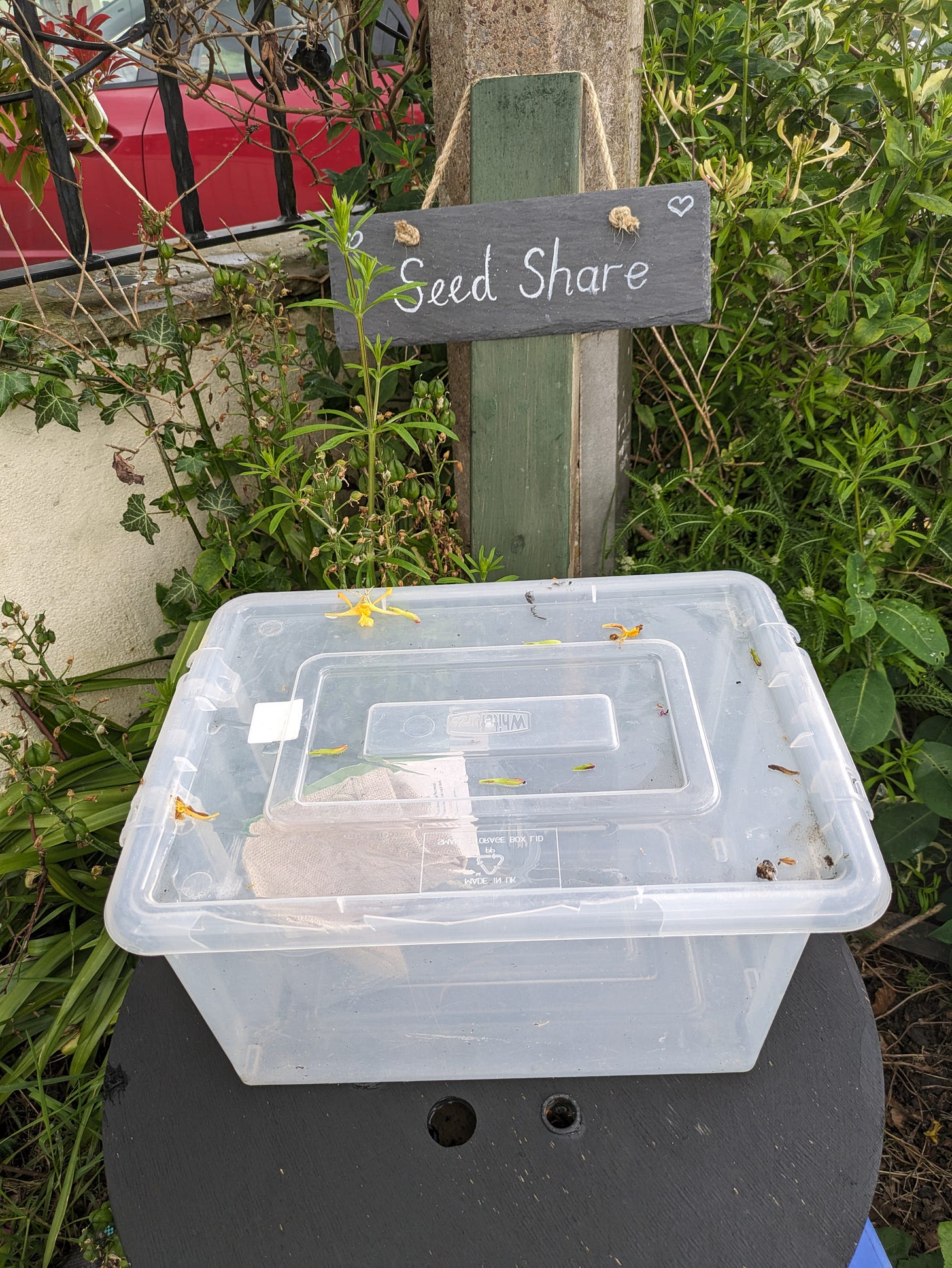Welcome to our June Newsletter, a newsletter of two halves.
Given last week’s surprise announcement, we have decided to make this edition an election special. As LEG is not a political organisation we will not be making any recommendations about which party to favour, but what we can do is explain what you can do in the run-up and help make your vote count for a greener environment.
And if you find yourself tiring of election fever, then take a moment to join us in celebrating National Insect Week happening later this month, a chance to appreciate the wonderful insects that are so crucial to our ecosystem.
Elections and Insects
There are no doubt many jokes here, but these are intrinsically linked. The government we elect in July will set the scene for the next five years, leading up to the critically important 2030 date for halting biodiversity loss- (known as bending the curve) - without which we will not have a thriving insect and pollinator population that we need for food, natural products and the health of us and the planet.
Vote for The Environment
We are at a crisis point, our climate and biodiversity is under extreme threat, and with time ticking this will most likely be our last chance for a government to take meaningful action to help secure a better future for us, our children and our planet. We may feel we are helpless, however there are a few meaningful actions we can take in the run up to casting our vote.
Talk about voting for the environment
The more we talk, the more conversations we hold, the more we engage with our parliamentary candidates, and the more environmental issues will become a key election topic. If everyone shares a Climate Voter message with at least one friend or family member it will increase the impact tremendously.
The Vote Climate site can give you information on the strongest vote for climate in your seat.
We will be sharing this newsletter with the Ribble Valley candidates. We would appreciate it if could also do so, or of course forward to those standing in your constituency if not based in the Ribble Valley.
Support the Climate and Nature Bill
The Climate and Nature Bill is a robust and science-led plan to address our climate and biodiversity crisis. It will help us to build stronger communities, assist us as citizens, and help us build better outcomes for nature, wildlife, and the environment. If our new government gets behind this then the UK has a chance to steer its decision-making for a more positive future for all. We ask our local candidates for their commitment to supporting the Climate and Nature Bill, highlighting they risk losing your vote if they don’t. Read the full details of the bill here.
Visit the Zero Hour Website
The Zero Hour website has been set up to promote and facilitate the support of the Climate and Nature Bill. It contains resources and facilitates easy steps so you can take positive action and help others to do the same.
Sign the Zero Hour open letter to your local candidates
One easy action that takes just seconds is to sign the open letter accessible by clicking on Zero Hour Action to candidates based in your local area. If you have time write a personal email or letter using the text from sites like Zero Hour. Thiswill have more impact.
Speak to your local candidates
A conversation can add that weight to your message, if possible find out where the local hustings are and ask directly for their commitment to the Climate and Nature Bill.
Did you know you can rate your satisfaction with your candidates through the Wildlife Trusts 2024 Election Satisfaction Survey.
Distribute climate vote posters and leaflets
Free posters, leaflets along with postcards to send to your election candidates, are available here to print at home.
There is also a campaign pack that includes posters, flyers, stickers, and badges, and can be ordered in different sizes depending on your campaign needs, and can be a great way of getting the word out.
Join Greenpeace’s Project Climate Vote
Greenpeace’s Climate Vote campaign is also around pushing the next government, whatever colour to take climate change seriously by signing up thousands of climate voters across the UK. Join the campaign, order a free poster, or pledge to be a climate voter.
The Dragonfly
Today I saw the dragonfly
Come from the wells where he did lie.
An inner impulse rent the veil
Of his old husk: from head to tail
Came out clear plates of sapphire mail.
He dried his wings: like gauze they grew;
Thro’ crofts and pastures wet with dew
A living flash of light he flew.
Alfred, Lord TennysonWhy are insects so important?
Whilst the Buff-tailed Bumble Bee (Bombus Terrestris) was crowned the UK's favourite insect, (in one survey by the Royal Society of Biology), we mustn’t overlook all of the other insects vital for human life on earth. There are over 20,000 insect species found in the UK all playing an important part in our ecosystem.
What is the most common insect?
This trophy is awarded to the fly which is also one of the most maligned of our species. The term fly is commonly used for almost any small flying insect. However, in entomology, the name refers specifically to the approximately 125,000 species of dipterans, or “true” flies, which are distributed throughout the world, including the subarctic and high mountains. If you haven’t yet been convinced of their true value take a read 5 reasons why flies are awesome
Pollinators
Many plants rely on insects to pollinate their flowers to reproduce, including some trees. We often think this job is down to only bees but other insects also fulfill this necessary role including, wasps, beetles, hoverflies, butterflies, and moths.
Recyclers
Insects such as flies, ants and beetles play an important role in breaking down waste as plants, dead animals and dung all get recycled into the soil. Imagine a world where this didn't happen!
Feeders
Insects are an important food source for other animals such as bats, birds, reptiles and rodents as well as other insects, such as dragonflies that are experts at catching midges and mosquitoes in mid-air. And as we become more aware of the impact of eating meat on the environment insects are also becoming an increasingly important food source for humans too. Insects such as mealworms, locusts and crickets provide a rich source of protein along with high doses of vitamins and minerals.
Is this our Silent Spring?
In a wonderful if not worrying long read in the Guardian, Where the wild things are: the untapped potential of our gardens, parks and balconies Kate Bradbury describes the loss of insects and wildlife through the loss of our gardens as natural habitats. (Unbelievably, one in 10 homeowners with outside space has replaced at least some of their garden’s natural lawn with plastic grass.)
In her 1962 book Silent Spring, Rachel Carson documented the chipping away of life at the hands of those who used the pesticide DDT, which not only killed insects but was also found to thin the shells of birds’ eggs, meaning birds had fewer successful breeding attempts.
To think her silent spring would have been so noisy and raucous to my ears around 60 years later is the cruellest irony. How would she have coped with the silence there is today?
International Biodiversity Day
International Biodiversity Day was marked on May 22nd.
“Against the awe and wonder of nature's tapestry, what a shame that we feel the pain of loss rather than cause to celebrate and cherish the abundance of biodiversity that we too are part of”
Insect Week: 24-30th June 2024
Run by the Royal Entomological Society Insect Week is a celebration of all things insect. Wherever you live, it’s an opportunity to take part in insect science, get to know insects, learn from experts, and have fun.
What to look out for in Lancashire
If you’ve been ‘bitten by the bug bug’ and you would like to learn more about what you might find in Lancashire, then take a look at these two websites for some helpful identification. They might just inspire a great day out. Lancashire Wildlife Trust and Brockholes Nature Reserve.
LEG Events
May Past Events
LEG AGM and Saturday Social on May 11th was enjoyed by all who came along, generated lots more ideas and continues to foster the great community we have. All annual reports can be accessed via our Whatsapp group.
We had a successful litter pick recently … the great news was that there wasn’t as much litter as anticipated.
Well done to the residents of Ribchester who have been promoting the maintenance of a natural space around Pope Croft Car Park. There are now signs up highlighting some of the wildflowers growing on the verges, some planters have been installed along with a seed exchange.
Did you know - that the opposite of heritage seeds (naturally produced seeds, untouched by any processing) are called terminator seeds - plants that may produce seed but are genetically modified to stop further growth?
The truth about Greenwashing. 5th June. 7 pm LEG Co-Chair Martin is talking on a panel discussion with Dorest CAN Details here
Lancashire Climate Action Network (CAN) 2nd Annual Summit: 6th June. A few of us are attending this event and if you would like to join us please book here.
Social Saturday: 11th June - Meet for a walk around Ribchester, meeting at Pope Croft Car Park at 10 am.
Great Big Green Week: 8-16th June. For details of events follow the link to the official Big Green Week website
Restore Nature Now March London: 22nd June. Some of you may be interested in joining this event and if you know of any organised transport. Please let us know via WhatsApp.
Active Sunday: 23rd June - a walk around the key areas in Longridge to identify those with potential for ‘greening up’.
Longridge Show: 6th July - entries are being sought for ‘Recycled Articles’ and ‘Craft Challenge’ and would love to see entries into these categories from LEG members.
Keep in Touch
A reminder that you can …
And we look forward to connecting at our next social Saturday or active Sunday.
Supporting LEG
For time and other reasons, we are aware that not all can join our activities, so we have made it easier to support us with a donation. Simply use the QR code below and you will be taken to our Stripe page where you can donate. All gratefully received, no matter how small.
Thank You.










